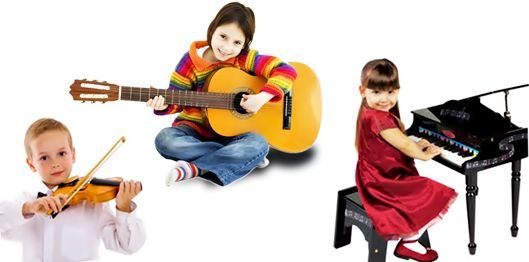Can you imagine your life without music? Definitely, it would be extremely difficult, as music is hard-wired into the existence of us as human beings. When everyone is eager to listen to a good music, there are only a few of those, who can be called musicians. Probably, the reason is an inability to teach children or just because of the lack of instruction or inclination. Nevertheless, music is the thing, which is never too late to learn. Here are 10 perfect reasons why each one of us should learn to play musical instruments:
Playing music helps relieve stress. According to results of several kinds of research, playing musical instruments on a regular basis helps bring down stress. Besides, studies show that playing music decreases the heart rate and blood pressure that contribute to lowering cortisol, known as a stress hormone. As a result, a musician can feel relaxed. Simple listening to music is of great help as well, so you can only imagine the use of practicing music. Michael Jolkovski, who is a popular psychologist that specializes in musicians, tells that music helps bring down stress and assist people in connecting with others.
Playing music advances your social life. Music helps you find the connection. Learning to play musical instrument increases your social circle, as you have to meet an increasing number of people. For children, music is also effective in developing social skills. Maestro Eduardo Marturet, musical director of the Miami Symphony Orchestra, composer and conductor, who is also in charge of the MISO Young Artist program in South Florida, has been studying the impact of music on social skills of children. The results showed that children involved in musical groups or ensembles have more important life skills, including how to work in a team, how to treat others, etc.
Playing music helps develop memory. Memory and playing musical instruments go hand in hand. If you learn to play a musical instrument, you use two parts of the brain, so you boost memory power. Maestro Eduardo Marturet reiterates the issue, claiming that “further research has shown that participation in music in childhood can help advance a child’s memory and learning ability by stimulating various patterns of brain development”. Besides, music education is linked to better IQ levels and physical development of certain parts of the brain.